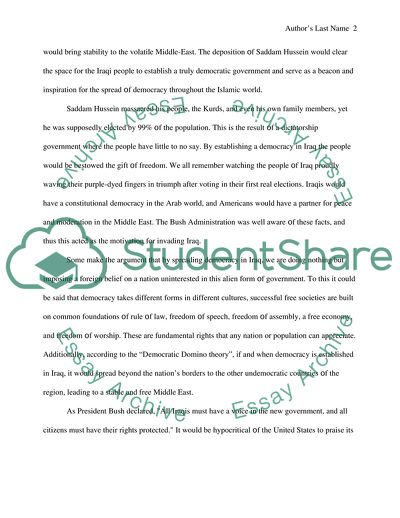Cite this document
(Motivation for the Iraq War Case Study Example | Topics and Well Written Essays - 3250 words, n.d.)
Motivation for the Iraq War Case Study Example | Topics and Well Written Essays - 3250 words. https://studentshare.org/politics/1713782-iraq-and-the-security-challenges-facing-the-us
Motivation for the Iraq War Case Study Example | Topics and Well Written Essays - 3250 words. https://studentshare.org/politics/1713782-iraq-and-the-security-challenges-facing-the-us
(Motivation for the Iraq War Case Study Example | Topics and Well Written Essays - 3250 Words)
Motivation for the Iraq War Case Study Example | Topics and Well Written Essays - 3250 Words. https://studentshare.org/politics/1713782-iraq-and-the-security-challenges-facing-the-us.
Motivation for the Iraq War Case Study Example | Topics and Well Written Essays - 3250 Words. https://studentshare.org/politics/1713782-iraq-and-the-security-challenges-facing-the-us.
“Motivation for the Iraq War Case Study Example | Topics and Well Written Essays - 3250 Words”. https://studentshare.org/politics/1713782-iraq-and-the-security-challenges-facing-the-us.


